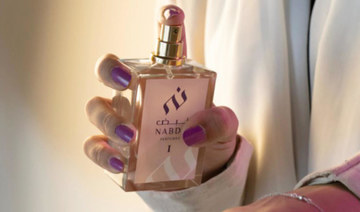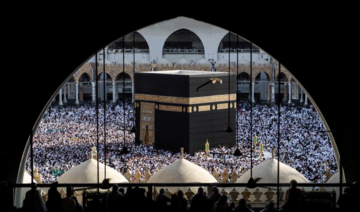RIYADH: Researchers at King Abdullah University of Science and Technology have discovered chemically produced alternatives for ingredients normally sourced from agarwood trees for the production of perfumes in this $44 billion market.
The KAUST researchers published the study, titled “A synthetic biology and green bioprocess approach to recreate agarwood sesquiterpenoid mixtures,” in the journal Green Chemistry on March 4, the Saudi Press Agency reported on Wednesday.
Several types of perfumes use essential oils and other extracts from agarwood, a family of trees found mainly in Southeast Asia. The only natural way to obtain these aromatic substances is by tapping the trees and the high demand for these products has put many tree species at risk of extinction.
The study, conducted by the Sustainable & Synthetic Group at KAUST, examined 58 agarwood samples to identify nine key structures of sesquiterpenoids, one of the main aromatic compounds of agarwood. They then designed a metabolic architecture that enables algae to produce these key structures.
They were able to achieve a yield that is 25 times higher than the ones previously recorded by adopting this new algae-engineered method.
The study showed that the use of metabolic engineering in algae to produce aromatic sesquiterpene compounds had an unexpected effect that improved the production of terpenes by the algae. Some compounds produced by the metabolically-modified algae have potential in drug development, but fragrance is a favored initial commercial target.
In this research study, a new bioprocess was designed to synthesize 103 types of sesquiterpene aromatic compounds from basic structures. It is based on an energy-efficient nanofiltration step for product concentration.
Unlike previous efforts in this field, the entire process can operate at room temperature and produces minimal waste, making it an inexpensive and environmentally friendly process for an industry that relies heavily on dwindling natural resources, the study stated.
The study concludes that any laboratory equipped with basic chemical infrastructure can conduct these experiments.





























